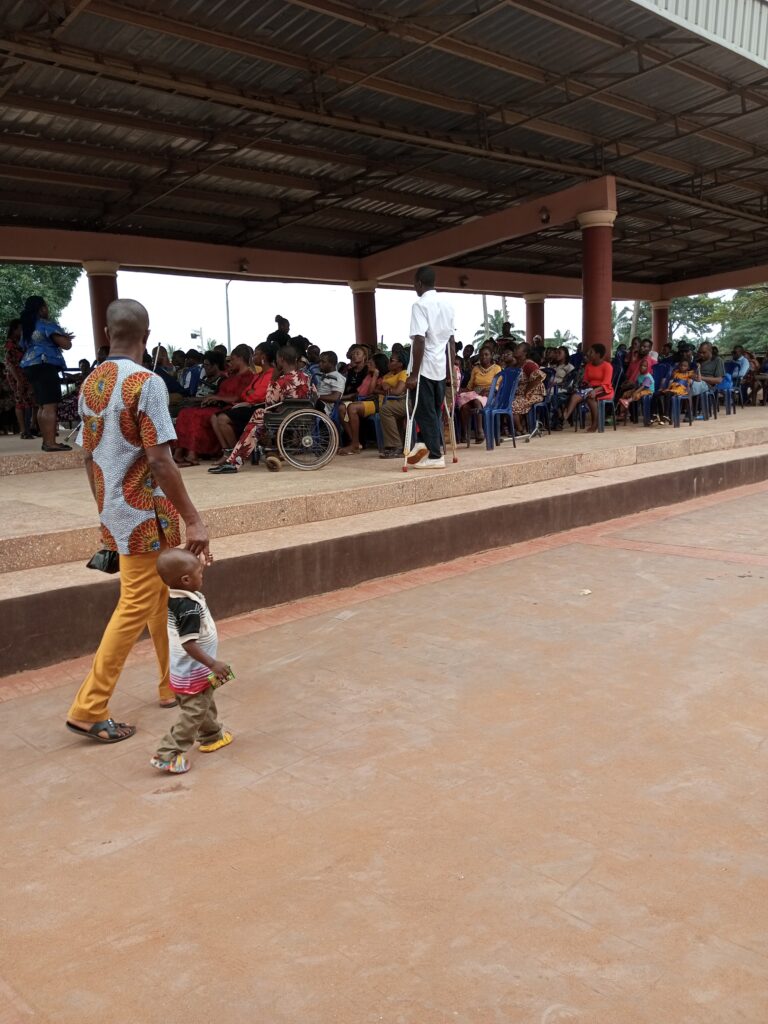By Alfred Ajayi
* Note: some of the names in the story (especially those of some victims) are not real.
“Many people from the eastern part of Nigeria and in fact Africans, believe that persons with disabilities suffer their fate as a curse by the gods or sins of their ancestors. They are part of Africans who also believe that PWDs because they are cursed should not be allowed to participate in the society.”
With the above, David Anyaele, the Executive Director, Centre for Citizens with Disabilities, CCD, captures the ordeals of persons with disabilities, (PWDs) in the Igbo society. As a result of erroneous cultural beliefs, PWDs, he notes, have suffered unpleasant consequences such as stigmatisation, discrimination and exclusion. “Government programmes and activities are designed and implemented at their exclusion. They are largely isolated. You see that in the way people relate with them. You see it in the built environment as most public offices are not accessible to persons with disabilities,” he laments.
15% of the 8 billion world population is said to have one form of disability or the other, making it unthinkable that humanity can afford to leave them behind. All of the people interviewed for this report align with David Anyaele on the tragic situations of PWDs in Nigeria, particularly in all the five states of the South-East region.
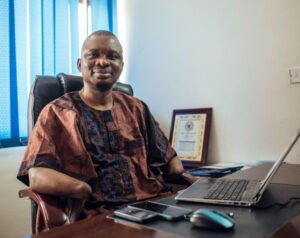
Given that persons with disabilities in all climes are more prone to abuses, the situation in South-East region, according to the respondents, is more disturbing due to a generally shallow understanding of their special conditions and needs. If they are not sexually abused, day-to-day verbal abuses leave them shattered psychologically and mentally.
A good number of them shared their unsavory tales with this reporter, which consequently affect their sense of self-esteem and in most critical cases, make them world-weary.
The story of 38-year-old visually impaired Angela Kingsley (not real name), from Achina, Aguata Local Government Area of Anambra State, provokes tearful thoughts. Angela, a 2021 graduate of Nnamdi Azikiwe University Awka, was lured into a love affair by a young man, Blessed Chisom Udochukwu, who claimed to have hailed from Ebonyi State.
On their second meeting day, Angela got the shocker which left her devastated and heart broken. “Hmmmn! He had been begging me on several occasions for sex and I refused. So, that day, he visited and passed the night in my house. He pressurized me again for sex and I said no. I was sleeping and suddenly realized that he was on me.”
“It was all my fault. I should not have allowed him to sleep here in the first place. But, I thought he was for real,” she regrets.
Not deterred, Angela continued the journey of love with the man she now calls a fraudster. She was however not spared the consequences. She paid hugely for it.
“He told me he is a musician, medical doctor and evangelist in Abakaliki. In fact, the first day he came, he held my hands and prayed with me. He invited me to Abakaliki. I went with my sister. After that trip, I decided to marry him. My parents believed him also. He was calling my mother and younger sister every week. His pastor and uncle were equally calling me.”
Blessed Chisom milked his unsuspecting victim to the tune of N220,000 before she came to her senses. Having realized she had been scammed, Angela tactfully devised a way of reclaiming all she had lost.
“I kept inviting him but he refused to come. He blocked me, my mother and younger sister. One day, I cooked up a story that I had pile. He asked me to send N50,000, I told him I don’t have it. After some days, I decided to lure him. So, I called him to come and collect N25,000.”
After much persuasion, the lover boy agreed to come. “I went to the B-Division and alerted the police. When he finally arrived, I called them and within ten minutes, they were here. They took him away to their station.”
His arrest expectedly opened a can of worms. “His bank account was empty. His parents and elder sister who came to bail him said his name is not Blessed Chisom Udechukwu and he is not from Ebonyi. He is from Abia State. Also, he is not a medical doctor. The parents promised to pay my money back.”
Intelligent Angela reclaimed N50,000 from her total money that day while the father agreed to pay N20,000 from his meager N50,000 salary every month.
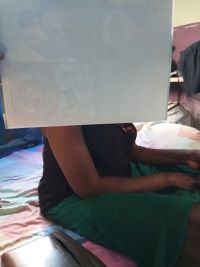
58-year old Emmanuel Chima (not real name) from Uhuala-Udo in Ezinihitte Local Government Area of Imo State, lives with albinism and is equally visually impaired. These twin disabilities have made life difficult for him. He recounts experiences amidst emotional breakdown.
“Any time I think about the way I am, it makes me cry. People call me names and use me to sing funny songs. You hear them saying NEPA, NEPA or albino, albino. Due to my bad sight, many people come to spend counterfeit money in my shop. Before I would discover it, they must have gone. This has put me in serious debt,” he lamented.
Emmanuel has equally been diagnosed of skin cancer, one of the commonest disease conditions among persons with albinism, which has left him with two bad options. “It is either I go for surgery or use drugs to treat it. They said even after I go for operation, another one will come out. So, I settled for medication. But, they are expensive. I spend up to N150,000 for thirty days.”
In a society where unemployment rate is on a steady rise, the situation is ‘more terrible’ for PWDs, especially the female folks as jobs are not readily offered to them. When they are so considered, it is usually on charity and compassionate grounds.
However, Comrade Onyebuchi Mba, a visually impaired graduate, weathered the storm to bag Bachelor of Education B.Ed from Nnamdi Azikiwe University, Awka. Onyebuchi, the current Chairman, Joint National Association of Persons with Disabilities, JONAPWD in Enugu State, acknowledged that the feat did not come easy.
“Several of us are denied admission, not because of poor performance in their JAMB, or O’level but due to our disabilities. When I got admission into one of the institutions here, one of the heads asked the person that brought me in – why is this person here? Who gave him admission in this school?
“It took the intervention of another lecturer to educate him that the state is running an inclusive education, which allows these people to also school in the same environment like other persons.”
Section 49 sub-section 1 of the Anambra State Disability Rights Law (2018) states categorically that persons with disabilities shall have right to work on equal basis with others. Its sub-section 9 prohibits any employee from being relieved of his employment on grounds of disability sustained during his employment.
Unfortunately, these provisions could not shield Ifeoma Anibeze from job losses induced by her disability. “I have lost many jobs shortly after resumption. Any time they give me some tasks and I complain of my physical disability and inability to perform the tasks, the next thing is sack letter.”
Apart from being denied jobs, Ngozi has been verbally abused on several occasions. She recounts one of the occasions in anger-laden tone. “The man does not have manners. He talks to people anyhow. That day, we were talking and he said to me, see how you are. The statement moved me to tears and I felt like squeezing him.”
“I told him to count himself lucky that the disability he was insulting me is still the same reason I cannot engage him in a fight. I felt depressed with such degrading statement,” she lamented.
Elder Urasi Eze, a Senior Civil Servant and Teacher at the School for the Blind, Umuahia, Abia State, lost his sight in 2010 and enrolled at the School for the Blind in 2011. He has had a fair share of the sorry narratives.
He sees the society as too unfriendly to PWDs. “I have on several occasions given a tricycle operator one thousand naira for a journey of one hundred naira. Instead of giving me nine hundred naira, they will give me N300 (three one hundred naira notes) with a claim that they have given me one five hundred note and two pieces of two hundred naira notes.”
“I have also been treated unfairly at events by ushers, who mistake me for a beggar, without knowing that I was duly invited. Sometimes, people in the name of alms giving, have tried to force ten or twenty naira note into my hand.
“Other times, when I go to buy stuff from shops, before I get to the shop, they will start shouting – don’t come here early this morning. I don’t have any money to give. It’s a painful experience,” he concludes.
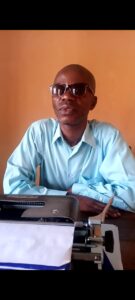
75-year old Ebere Nwoke hails from Amachara in Umuahia South Local Government Area of Abia State. His disability was caused by fracture of the pelvis and spinal cord problem, which seriously affected his back. He is now the chairman, Spinal Cord Injury Association of Nigeria, Abia State Chapter. He has lost count of occasions when he had been verbally abused not minding his age.
“You have seen how I am sitting. When I get to a public event and they provide plastic chairs for everyone. I will put two chairs together to lift myself up and help me to be a bit comfortable because of my situation. But anytime I do that, I receive backlash from other guests. They say while many people have not even gotten one chair to sit on, I am taking two all to myself. They don’t care to know why I do that.
“Even in your family, it is not everybody that will love you and not all that will also despise you. But, you must love yourself and move on in the best way you can,” he said.
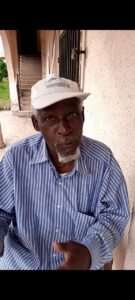
However, the case of Ngozi Nwaguru, the State Woman Leader in Abia State and former Senior Special Assistant to Governor Okezie Ikpeazu on Disability Matters, is among the few exceptions. Ngozi, the only one with disability in the family of seven, is fortunate with parentage as her father’s uncommon love for education gave a boost to her survival.
“My father believed that with good education, I will be self-reliant. So, he gave me the best. He gave me all the love I needed. Unfortunately, it is not the same with all the persons with disabilities. As a woman leader of JONAPWD, I can tell you that some of our members, especially women, battle against problems such as: discrimination, insecurity, trafficking, domestic and sexual violence, rape.”
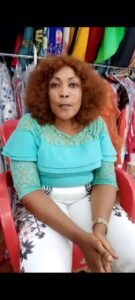
Comrade David Anyaele is a bilateral amputee. He lost his two hands in Freetown, Sierra Leone, during the war in that country. “I was captured by the rebels, who cut off my two hands because I am a Nigerian and the Nigerian government was then supporting the ECOMOG peace-keeping operation in that country.
Left for the dead, David was rescued by the Nigerian contingent of ECOMOG and was taken to the Nigerian Army Reference Hospital Yaba, where he was admitted for over almost six months. “I came back to Abia State and appealed to the government to support me to get rehabilitation. But my appeal was rejected by the then governor.”
“It was the hash conditions of people with disabilities in the state that made me to enter into the struggle to contribute my own quota to ensure that there is relief for PWDs no matter how little.”
However, he is sad that between the time of his disability incident and now, nothing much has changed in terms of attitude of the state government towards PWDs. “All lives are not precious in Abia State. More than 500,000 Abians with disabilities are left behind in government programmes and activities.”
“I give you a practical example, there is a place called the Nigeria Farmcraft Centre for the Blind in Lagos. It is built by the Federal Government for the rehabilitation of blind persons in the country. Every year each state is entitled to send three persons to the centre for rehabilitation. You can’t believe it, for more than five years Abia State’s slots have been taken by other states.”
In the view of Comrade Ugochukwu Okeke, JONAPWD Chairman in Anambra State, sexual exploitation is among the most worrisome abuses his members suffer especially the female folks.
“We have had several reports of sexual harassment and the clusters worst hit are women with visual and hearing impairments. A deaf lady was gang raped by a friend to her family, who connived with another person to rape her. Another blind lady at Ifite-Awka was raped by the okada man and she got pregnant and was unable to identify the okada man that raped her.”
Although such abuses are not formally documented, the West African Regional Director of Ford Foundation, Dr ChiChi Aniagolu-Okoye, confirmed that the African, Nigerian and Igbo societies remain hostile towards persons with disabilities. According to Dr Aniagolu-Okoye, who was the Keynote Speaker at the November edition of the monthly virtual town hall meeting organized by Ikengaonline, “PWDs face the fear of being used for rituals. They are rejected by employers without considering their abilities. They go for interviews, get jobs and when they show up for them, the jobs are taken away from them.
“These people are invisible to authorities that be. Many of them don’t do well in school. They don’t always pursue their dreams. It affects their self-esteem,” Dr Aniagolu-Okoye regrets.
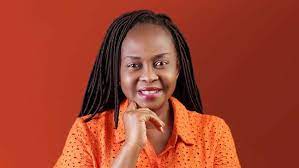
Conspiracy of silence
Despite the dehumanizing experiences they go through on daily basis, most victims of abuse and their relations prefer to keep their plights from public knowledge. This is attributed to stigma, discrimination and negative labeling that follow bringing such experiences to the knowledge of the society.
“PWDs, by their choice to keep mute empower their abusers,” regrets the Coordinator, National Human Rights Commission, Anambra State, Mr Obinna Maduforo, who was recently transferred from Abia State.
“I cannot remember seeing complaints lodged by PWDs in all the files I have gone through since I came here. In Abia where I came from, the situation is the same. They are known to sweep their ugly encounters with the society under the carpet. They assume nobody will listen to them. But, that is not true. We are here for them,” Obinna assures.
Commenting on the culture of silence, Comrade Onyebuchi Mba, Chairman, JONAPWD, Enugu State, blamed it on the fear of losing the help coming from the abusers. “Many times, the violators are their helpers. They fear that their situations will be worse if they report such persons. So, they prefer to keep it silent except those of them who are within the disability community.
“When you interact with them, they open up to you. You ask them – why don’t you report? They ask you – report to who? Who will listen to me? And even if I report, do I have the money to follow up on the matter?”
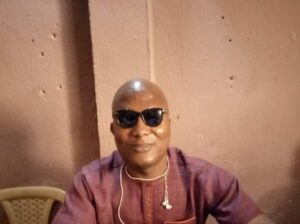
A civil society activist, Gloria Nwafor, had long overcome the emotional and psychological implications of abuse. She is now an activist helping PWDs to navigate through their low moments of life, through her NGO, Care for the Physically Challenged and Destitute Foundation, (CAPCADP).
“The abuses are so many. And that is why I promised God that I will help my colleagues to reduce the burdens of their physical disabilities. I have been through those abuses and understand what they are. My NGO is helping to educate and encourage our fellows not to give up on life because of their conditions.
“I tell them, if I could survive all the daunting challenges I faced, they can. But, they must be resolute so as not to get depressed and abandon their dreams in life,” Gloria advised.
Family Interference and Unsuccessful Prosecutions
There is no record of anyone who had been prosecuted for violating the rights of persons with disabilities. Sources across the region submit that abuse of PWDs has continued unabated as a result of inconclusive handling of cases while those that were concluded were not made to face the consequences as prescribed by the Disability Rights Act. This development is largely blamed on the victims and their families who often interrupt proceedings.
Mr Obinna, the Coordinator, National Human Rights Commission in Anambra State lamented: “The major problem is that when you go for prosecution, you get the offenders arrested and take the matter to court. While the matter is going on, the families of violators will pressurize the families of the victims, induce them with money and they stop coming to court. Eventually the matter will be struck out and it dies a natural death.
“But, most of them don’t even get to court. The next thing you hear is we have settled. You call the complainants, they don’t pick their calls. On the other hand, these complainants and victims are threatened by the violators. They are threatened with death, violence and black magic and they will tactically withdraw from the on-going matters,” Mr Maduforo regretted.
Comrade Ugochukwu shared one of many experiences to buttress the position of the NHRC coordinator. “We were progressing with the case of the deaf girl, who was gang raped. We provided them with sign language interpreters to explain the matter at Ntasi Sexual Assault Referral Centre, Enugwu-Ukwu. Suddenly, the family came and withdrew the matter. That was the end of it.
“I call on our members and their parents to stop hiding these criminals. Do not conceal the wrongs,” he said.
Adequate laws, poor implementation
There are several laws both at the national and international levels meant to promote and protect the rights and interests of PWDs. They include the Universal Declaration of Human Rights (UDHR) and the International Covenants on Human Rights, which in agreement with UDHR, proclaims that everyone is entitled to all the rights and freedoms set forth therein, without distinction of any kind.
The Convention on the Rights of Persons with Disabilities, which came into force on 3rd May, 2008, sees disability as an evolving concept resulting from the interaction between persons with impairments and attitudinal and environmental barriers which hinder their full and effective participation in society on an equal basis with others.
The general principles of the Convention as contained in its article 3, include among others: respect for inherent dignity, non-discrimination, full and effective participation and inclusion in society as well as respect for difference, equality of opportunity, accessibility and acceptance of persons with disabilities as part of human diversity and humanity.
Article 10 tasks the government to reaffirm that every human being has the inherent right to life and to take all necessary measures to ensure its effective enjoyment by persons with disabilities on an equal basis with others, while Article 6 particularly canvasses for full and equal enjoyment of all human rights and fundamental freedoms for women who are prone to multiple discrimination. Article 7 prescribes full enjoyment of all human rights and fundamental freedoms on an equal basis for children with disabilities.
The country’s Grundnorm, the 1999 Constitution as amended, in its chapter four, prohibits discrimination against persons in all ramifications. According to section 34, every person is entitled to respect for the dignity of his person and as such no person shall be subject to torture or to inhuman or degrading treatment, while section 35 offers personal liberty to every person. It says no person shall be deprived of such liberty except among other things in execution of court order or sentence as well as failure to comply with court order in respect of a criminal offence for which he has been found guilty.
The Discrimination against Persons with Disabilities (Prohibition) Act, 2018 prohibits discrimination on the basis of disability and imposes sanctions including fines and prison sentences on those who contravene it. The law has been domesticated in many states.
“Despite the laws and policies, the situation of PWDs remains dire in Nigeria in general and in the South-East in particular,” Dr Aniagolu-Okoye regrets as she admonishes the society to be kind to PWDs by consciously undermining stigmatization and discrimination as well as evolving a system that caters for the needs of everyone regardless of gender dichotomy. “Anybody at a particular time can become disabled due to rising spate of crises. So, we musts treat them well.”
South-East Peer Review
Searchlight was beamed on governmental efforts towards protecting the interests and rights of persons with disabilities across the five states of the region. From available information, Anambra State remains the most-friendly. It was the first to enact the disability rights law in 2018, while many PWDs have been appointed and recruited into the state civil service. In 2019 alone, over 200 PWDs were recruited, while some of them also benefited from the recent engagement of five thousand teachers by the Soludo-led administration.
The Disability Rights Commission, a major requirement of the law, was constituted and inaugurated in February 2022 by the immediate past governor, Chief Willie Obiano. Be that as it may, the law is not being implemented due to what many term the inefficiency of the commission. Further probing revealed that the commission’s inactivity is largely linked to financial constraint, as it still does not have a budget line of its own.
Mrs Ifeyinwa Obinabo, the Commissioner for Women Affairs and Social Development in the state, speaks more: “The state government has empowered them with seed grants that will enable them start up businesses based on skills they have acquired. We have the highest number of persons with disabilities employed by the state.
“The government has also taken a social diary of all of them so that they can be properly carried along in our comprehensive plan. The aim is to provide them with the needed support that will enable them to overcome their different challenges,” Mrs Obinabo explained.
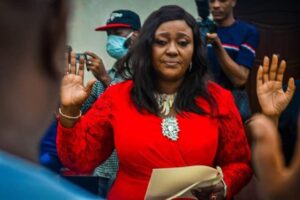
In Enugu State, public hearing was conducted on Wednesday, 16th November, 2022, following the second reading of the Discrimination Against Persons with Disabilities Prohibition Bill. The bill is targeted at establishing an agency to protect the education, healthcare, social, economic and civil rights of persons with disabilities and to ensure their full integration into the society.
Apart from the law, fifty graduates living with disabilities were in 2017 absorbed into the state’s work force by the current administration of Governor Ugwuanyi, but none of the members of the disability community in the state has been appointed into political positions.
Dr Uzoamaka Okenwa Uzoechina, the Permanent Secretary, Ministry of Gender Affairs and Social Development, owned up to the inadequacies of government efforts towards alleviating the plights of PWDs in the area.
“The government has planned, mark my word, the government has planned to cater for these people. Nevertheless, government is not doing much. Most of the support and interventions they get normally come from NGOs and private organizations.”
According to her, Government’s seeming lack of interest is linked to non-release of the money budgeted for certain programmes and activities aimed at making life better for them.
“Not that we don’t apply for the money, but release is a major problem. However, we send visually impaired people from here to Lagos every year. Government releases about two million for that purpose.
“Some of them are employed in my office as staff (eight visually impaired and some others). In the rehab, 47 of them are enrolled to acquire various skills. Government brings little subvention to support those in the rehab.”
Dr Okenwa eagerly awaits the eventual enactment of the law and its effective implementation to further promote and protect the interests of PWDs in the area. “In terms of implementation, I believe by the grace of God, we shall get there. Let God give us the right government, the right people that think and empathize with people.”
Abia State has had PWDs appointed into political offices. Among them are: Mr. Ekeoma Onwukwe Samuel, the Senior Special Assistant to the Governor on Disability Matters; and Mrs Anthonia Ngozika Isiguzo, the Senior Special Assistant to the Governor on Persons with Hearing Impairment. Many of them are also in the employ of the government.
Just last month, Governor Okezie Ikpeazu in November 2022 signed the Abia State Disability Bill into law, making the state the second after Anambra to have enacted the law. David Anyaele, the Executive Director, Citizens Centre for Disabilities, (CCD) recalls efforts that culminated in the historic signing. “It took lobbying, advocacy and persuasion. It took ‘do not put me to shame’ before we got it out from the assembly and secure the governor’s assent.
David, is however worried about the timing of the assent. “It was assented to few weeks to the end of the administration. When are you going to do the budgeting? If government is committed, they should have announced the constitution of disability rights commission and appointed members. They should have invited persons with disabilities to such ceremony. But, we did not enjoy such privilege. This law may not translate to better living for persons with disabilities.”
On worries about the implementation of the law, David believes the struggle continues in form of advocacy, sensitization among other activities. “We are in a struggle and we will do our best to encourage anyone coming to implement it. We must not allow our struggle to be in vain.”
Since June 2021, when the bill for a law on the protection of rights of disabled persons in Imo State and other related matters passed first reading, it is yet to become a law one and half years after. The bill seeks to provide a legal and institutional framework for the protection and promotion of the rights of persons with disabilities as well as promote policies, programmes and best practices that encourage the full participation of persons with disabilities in social and economic development.
Enactment of the law in Ebonyi State is still a matter of advocacy, according to Comrade Chieme Odumegwu. “The bill has been drafted but not yet presented to the house. The SSA to the Governor on Religion and Welfare Matters keeps promising us that the bill will be signed into law before this regime ends.”
Chieme sounds frustrated with the attitude of the SSA towards the bill meant to improve their welfare and well-being.
“Governor handed us over to the SSA, but he is not helping us. He said that there are certain things in the bill that if it is signed, people in the community will be carrying some people to court. But tell him it is not so.”
Apart from not having the law, PWDs in the area are denied access to jobs even in the civil service. “About 87 PWDs were employed by the past administration and since this regime took over, they have been receiving stipends. We have medical doctors among these people. We don’t know why the government does not want to absorb them into the civil service. I wonder what will be their fate when this government will be over on May 29, 2023.”
However, more than 600 PWDs (including those without certificates) were absorbed into the workforce by the administration of Dr Sam Egwu. “After that, no other governor has employed them. Even the subvention and bursaries they were giving to them has been suspended. This forced many of them to drop out of school. We are facing a terrible condition here,” Chieme lamented.
The reaction of the SSA to the Ebonyi State Governor on Religion and Welfare Matters, could not be gotten as he did not pick calls neither did he respond to the messages sent to him.
Collective efforts solicited
One critical need identified in the course of this report is for the society to have a better understanding of persons with disabilities and how best to relate with them. This, many commentators believe will help to reduce abuse, stigma and discrimination they face on daily basis.
“Reversing the woes of PWDs in the region starts with intensified awareness campaign,” Dr Aniagolu-Okoye submits as she equally pleads for greater access and inclusion for them.
“There is a collective call for awareness to ensure that people understand the challenges that they face and provide opportunities for them. PWDs need to participate in decision making platforms. There needs to be full inclusion of PWDs including women. They need to have access. They request for inclusion in government.”
In her view, the best way to achieve improved living conditions for the PWDs is making them to assume influential political positions. “We must also look at how to get them into elective positions especially at the state legislatures. This will help to advance their issues.”
Statistics are also considered central to addressing the challenges confronting them. It is believed that relevant data about PWDs will assist to ensure better and more impactful interventions. “We need to begin to gather statistics about their challenges. Statistics don’t cover them especially at the state levels,” one of the respondents submits.
Respondents believed that all are hope is not lost with deliberate policies formulated and right laws enacted to improve their fate. While abuses of the PWDs are allowed to fester, achieving the lofty targets of Sustainable Development Goals (SDGs), remains a mirage in that all the 17 goals have either direct or indirect impacts on humans regardless of their disability status.
“I hope we will get to a stage in our society when we will treat all human beings with dignity. We need to look at the social norms that affect them. People still see disability as a curse, or as a shame. Through education and campaign, we will change the narratives, Dr ChiChi Aniagolu-Okoye, concludes.
This Report is part of activities by the Ikenga Media & Cultural Awareness Initiative (IMCAI) under the Collaborative Media Engagement for Development Inclusivity and Accountability Project, a multi-level intervention for media independence and government accountability, managed by the Wole Soyinka Centre for Investigative Journalism (WSCIJ) and supported by MacArthur Foundation.

